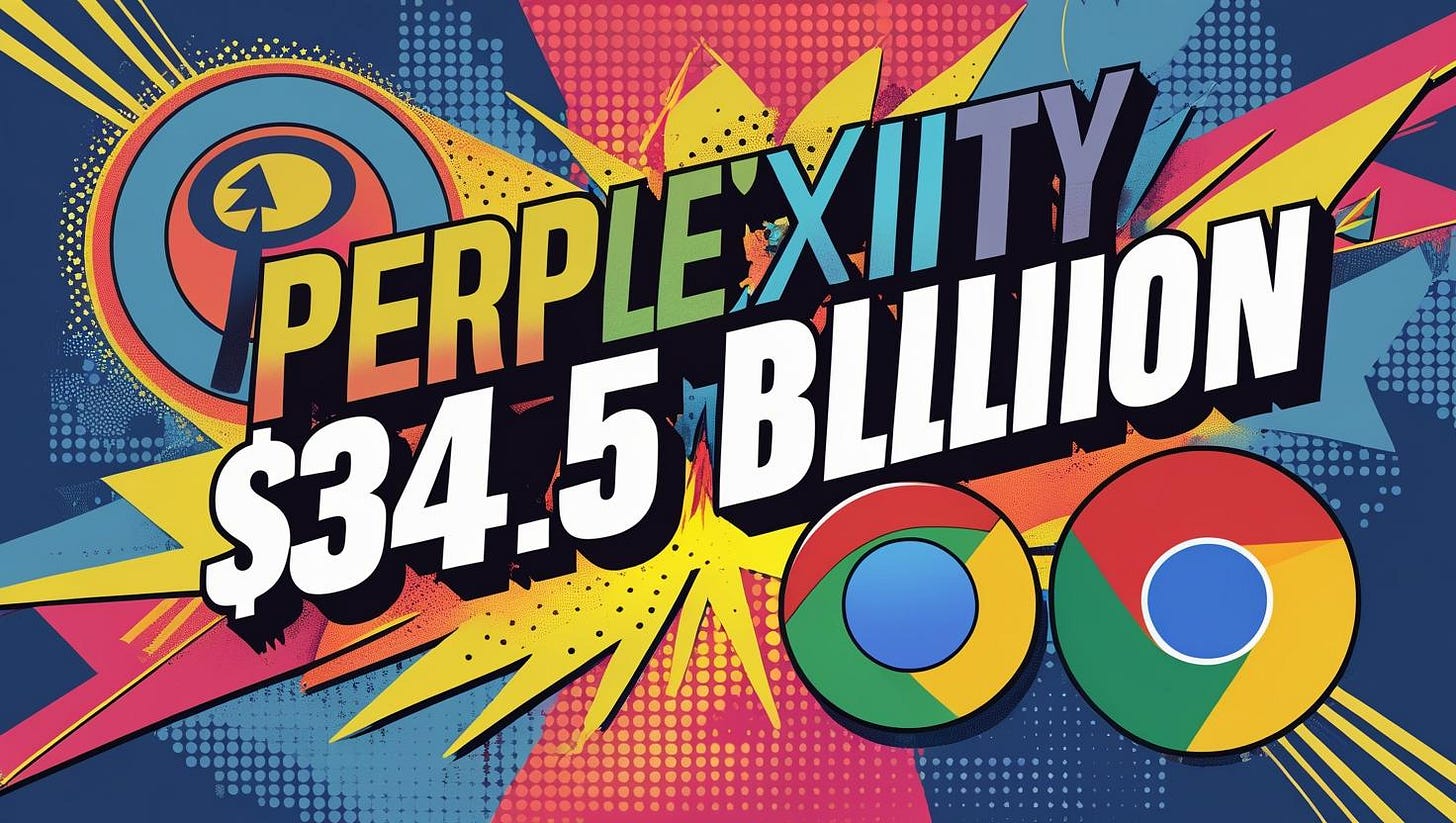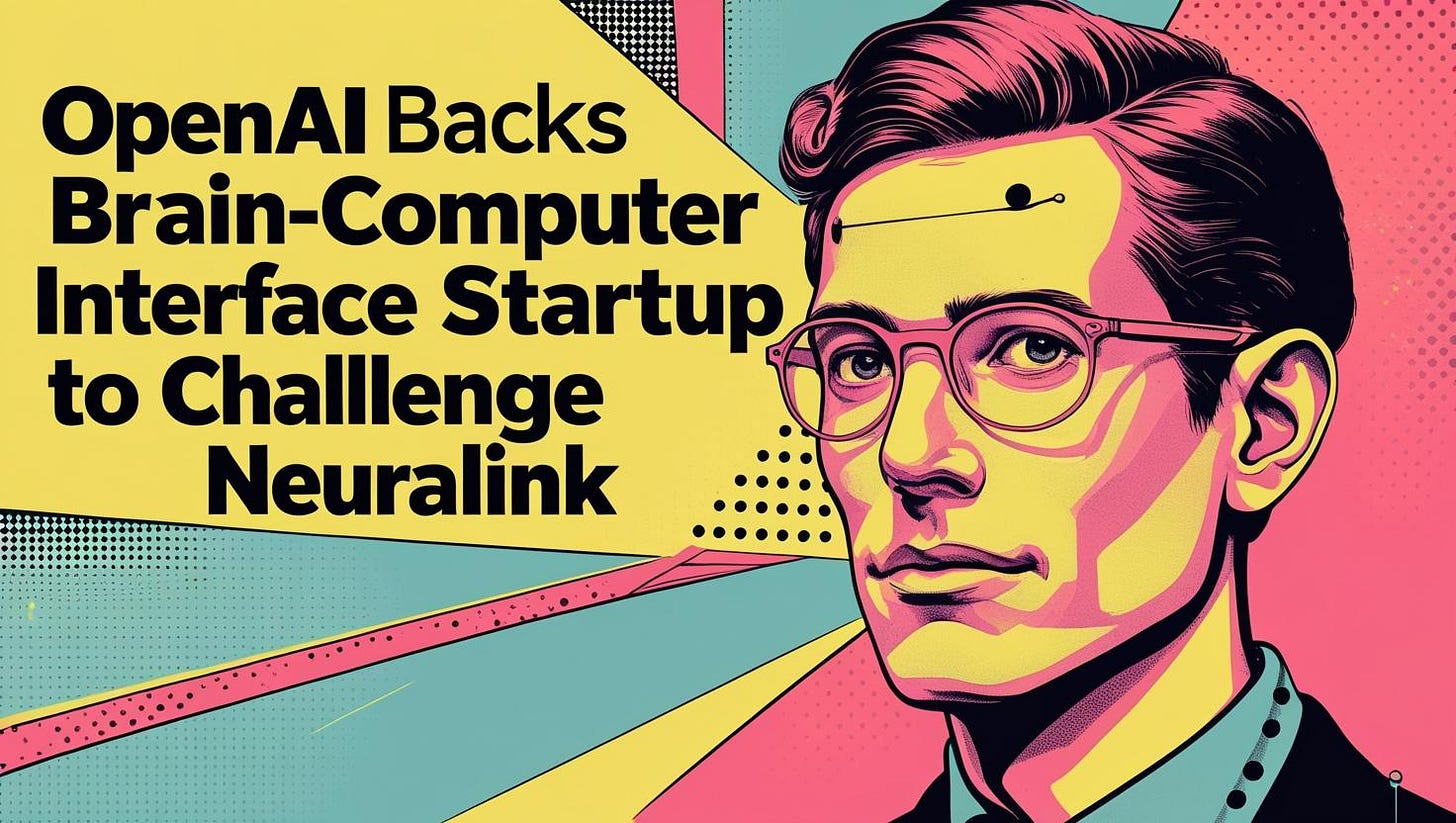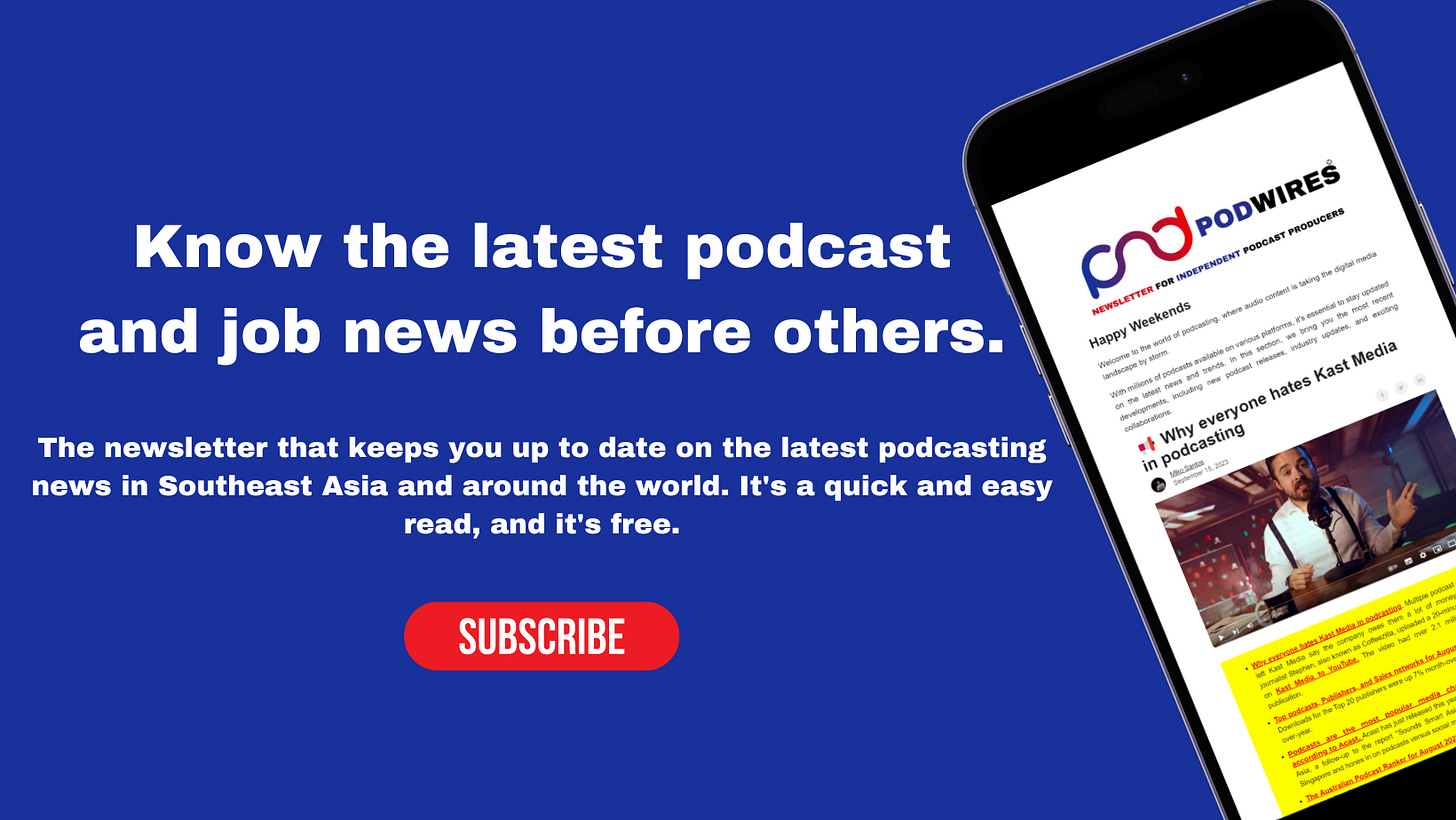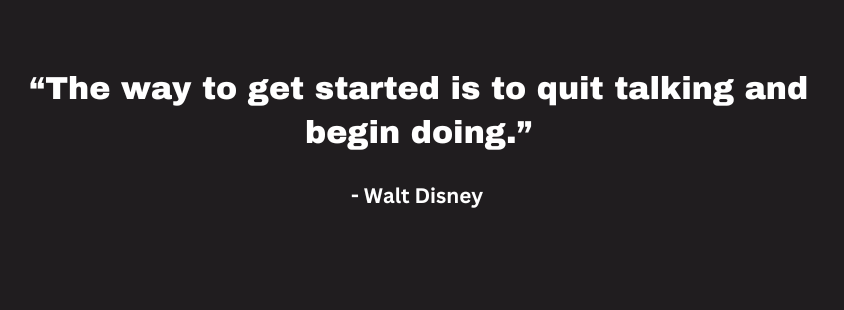📢Australian report identifies tradies, nurses, cleaners as AI-resistant jobs
The jobs most at risk and safest from AI have been revealed by a landmark new government report on Australia's generative AI transition.
Today’s email is brought to you by Empower your podcasting vision with a suite of creative solutions at your fingertips.
Hey, Glitchers it's Thursday, August 14
Here's some good news for you Aussies who are worried about AI taking over your job: new research says you should think about getting a trade or a nursing job instead of one of those admin or office jobs. AI's going to have an impact on pretty much all jobs in Australia, but for most people, it'll just change rather than replace their jobs.
If you have any thoughts or feedback, our inbox is open; contact us via email, and don't forget to sign up for this newsletter here if you haven't already. Encourage a friend to subscribe as well! - Miko Santos
In today’s There’s a Glitch :
AI Search Startup Perplexity Bids $34.5 Billion for Google Chrome
Anthropic Expands Claude AI Context Processing to 1 Million Tokens
OpenAI Backs Brain-Computer Interface Startup to Challenge Neuralink
Australia Maps AI Job Impact as Clerical Roles Face Displacement
Truth matters. Quality journalism costs.
Your subscription to Mencari directly funds the investigative reporting our democracy needs. For less than a coffee per week, you enable our journalists to uncover stories that powerful interests would rather keep hidden. There is no corporate influence involved. No compromises. We provide honest journalism when it's most needed.
🔥AI Search Startup Perplexity Bids $34.5 Billion for Google Chrome
The Breakdown: Perplexity, an AI-powered search company valued at $18 billion, has made an unsolicited $34.5 billion offer to acquire Google's Chrome browser — a bold move that could reshape web browsing as Google faces federal antitrust pressure to divest the dominant browser following its landmark search monopoly ruling.
The Details:
• Financial structure: The bid represents nearly double Perplexity's current valuation, with backing from major venture capital firms to fund the acquisition of Chrome, which analysts estimate is worth at least $50 billion
• Technical commitments: Perplexity pledges to maintain users' current browsing preferences, including Google as default search engine, while investing $3 billion in Chromium development over 24 months and providing 100 months of continued Chrome support
• Strategic positioning: The three-year-old startup already competes directly with Google Search through AI-curated summaries and recently launched its own Comet browser, positioning itself as a comprehensive alternative to Google's web ecosystem
• Market timing: The offer capitalizes on Justice Department proposals requiring Google to sell Chrome as remedy for antitrust violations, creating an unprecedented opportunity for a smaller competitor to acquire critical web infrastructure
• Broader AI competition: The bid reflects intensifying competition among AI companies to control web access points, with OpenAI reportedly developing its own browser and both Meta and Apple exploring potential Perplexity acquisitions
Why It Matters: This acquisition attempt signals a fundamental shift in how AI companies are approaching web dominance — moving beyond search engines to control the entire browsing experience.
While Google will likely resist any forced Chrome sale and the bid faces long odds, Perplexity's offer demonstrates how regulatory pressure on Big Tech is creating opportunities for emerging AI players to challenge established web hierarchies. The move also validates the strategic importance of browser control in the AI era, where companies are racing to become the primary interface between users and web content. Success could transform Perplexity from a search challenger into a comprehensive web platform, fundamentally altering competitive dynamics in both search and browsing markets.
🤖 Claude Sonnet 4 Expands Context Window to 1M Tokens
The Breakdown: Anthropic's Claude Sonnet 4 now processes up to 1 million tokens in a single request — a 5x capacity increase enabling comprehensive analysis of entire codebases with 75,000+ lines or dozens of research papers simultaneously, now available in public beta.
The Details:
• Computational expansion: The 1M token context window represents a 5x increase from previous limits, allowing processing of complete software projects including source files, tests, and documentation in unified analysis workflows
• Pricing structure: Input costs remain $3 per million tokens for prompts under 200K tokens, escalating to $6 per million tokens beyond that threshold, with output pricing similarly tiered at $15 and $22.50 per million tokens respectively
• Platform availability: Public beta launches on Anthropic API for Tier 4 customers and Amazon Bedrock, with Google Cloud Vertex AI integration scheduled for upcoming release and broader API access rolling out progressively
• Performance optimization: Enhanced capabilities integrate with existing prompt caching and batch processing features, delivering up to 50% cost reductions while maintaining processing speed for large-scale operations
• Production validation: Early adopters including Bolt.new and iGent AI report sustained accuracy in real-world coding environments, with multi-day development sessions now feasible on production-scale codebases
Why It Matters: This expansion fundamentally shifts the economics of AI-assisted development and research by eliminating the traditional constraint of context fragmentation. While competitors focus on model performance improvements, Anthropic's approach addresses a core limitation that has prevented AI from handling enterprise-scale workflows effectively.
The timing aligns with increasing demand for autonomous coding agents and comprehensive document analysis tools, positioning Claude as infrastructure for applications requiring deep contextual understanding. Success here could establish new benchmarks for AI utility in professional environments, moving beyond proof-of-concept implementations toward genuine productivity acceleration in software engineering and research domains.
🚨 OpenAI Backs Brain-Computer Interface Startup to Challenge Neuralink
The Breakdown: OpenAI and cofounder Sam Altman are launching Merge Labs, a brain-computer interface startup seeking $250 million at an $850 million valuation — escalating the rivalry between Altman and Elon Musk as both pursue the convergence of artificial intelligence and direct neural computing.
The Details:
• Funding structure: Merge Labs targets $250 million in Series A funding primarily from OpenAI's ventures team, with the startup valued at $850 million pre-money, positioning it as a significant competitor to Neuralink's $9 billion valuation
• Leadership configuration: Sam Altman will cofounder the venture alongside Alex Blania, who currently runs World's eyeball-scanning digital ID project, though Altman will not maintain operational control or personal investment in the company
• Technical positioning: The startup leverages recent AI advances to develop high-bandwidth brain-computer interfaces, building on decades-old implant technology enhanced by improved neural signal processing and computational capabilities
• Market timing: Launch coincides with Altman's 2017 prediction that human-machine convergence could occur by 2025, reflecting accelerated development in neural interface technology and AI integration
• Competitive landscape: Direct challenge to Neuralink, which raised $650 million earlier this year, while joining established players including Precision Neuroscience and Synchron in the expanding brain-computer interface sector
Why It Matters: This venture represents a strategic escalation in the Altman-Musk rivalry beyond traditional AI development into the critical frontier of human-computer integration. While brain-computer interfaces have existed for decades, the combination of advanced AI processing with improved neural signal collection creates unprecedented opportunities for practical applications.
Altman's backing through OpenAI's ventures arm suggests confidence that recent AI breakthroughs can solve fundamental bandwidth and interpretation challenges that have limited previous neural interface implementations. Success could establish OpenAI's ecosystem as the dominant platform for human-AI integration, while failure might validate Musk's early-mover advantage in Neuralink. The timing aligns with broader industry momentum toward multimodal AI systems, positioning neural interfaces as the ultimate input mechanism for next-generation computing platforms.
🚀 Australia Maps AI Job Impact as Clerical Roles Face Displacement
The Breakdown: Jobs and Skills Australia released a landmark analysis identifying clerical and administrative roles as most vulnerable to AI displacement by 2050, while manual trades, nursing, and hospitality positions show employment gains — providing the first comprehensive governmental assessment of generative AI's workforce impact during Australia's "critical early transition" phase.
The Details:
• Displacement patterns: Office clerks, receptionists, bookkeepers, sales/marketing professionals, and business analysts face highest employment losses, with clerical tasks previously immune to automation now susceptible to generative AI capabilities
• Employment growth sectors: Cleaners, laundry workers, midwives, nurses, construction laborers, and hospitality workers projected to gain positions, reflecting AI's limited impact on physical, interpersonal, and specialized care functions
• Skill-level analysis: Higher-skilled occupations demonstrate greater exposure to medium automation potential, suggesting knowledge workers may achieve efficiency gains rather than displacement through AI augmentation
• Geographic and temporal variables: Impact distribution varies significantly across regions, industries, and timeframes, with technology evolution expected to continuously reshape workforce dynamics
• Public sentiment indicators: Yahoo Finance polling reveals 41% of Australian workers express concern about AI job displacement, with 7% reporting current impact, highlighting workforce anxiety levels
Why It Matters: This government analysis establishes the first official framework for understanding AI's differential impact across Australia's labor market, moving beyond speculative discourse toward evidence-based workforce planning.
The findings challenge conventional assumptions about AI primarily affecting low-skilled work, instead revealing knowledge workers face significant transformation while manual and interpersonal roles demonstrate resilience.
The timing positions Australia to develop targeted reskilling initiatives and policy responses during the early generative AI adoption phase, potentially establishing competitive advantages in AI-human collaboration models. The research validates emerging patterns observed globally while providing Australia-specific data for strategic workforce development, suggesting successful adaptation requires coordinated responses across education, industry, and government sectors.
👉 If you're looking to get up to speed with podcasting in South-east Asia and around the globe in just five minutes, this is the perfect place for you! Just click here.
Infosys Acquires 75% of Telstra's Versent Group in Major Australian AI and Cloud Joint Venture Deal. Global technology consulting leader Infosys has announced a strategic joint venture with Australia's Telstra, acquiring 75% of digital transformation company Versent Group to deliver AI-powered cloud solutions and accelerate digital transformation for Australian enterprises and government organizations.
KPMG Australia Reports $2.315 Billion FY25 Revenue with $80 Million AI Technology Investment Strategy. KPMG Australia generated $2.315 billion in revenue for FY25 while investing $80 million in AI technology and becoming the world's first organization to receive BSI's AI management system certification, positioning the Big Four accounting firm as a leader in AI-driven professional services transformation.
Australian Government Considers Forcing Google and Meta to Disclose AI Training Data for Copyright Protection. Australia's Attorney-General Michelle Rowland is considering legislation that would force major tech companies like Google and Meta to publicly disclose the content used to train their AI models, enabling Australian publishers and creative professionals to better enforce copyright protections and seek compensation for their work.
CSIRO Develops Breakthrough AI Protection Technology to Block Unauthorized Image Training and Deepfake Creation. CSIRO researchers have developed a groundbreaking technique that adds mathematically-guaranteed invisible protection to images, preventing unauthorized AI systems from learning facial features for deepfakes or training on copyrighted content while remaining completely undetectable to human viewers.
Atlassian Founder Scott Farquhar Calls for US-Style AI Copyright Laws to Allow Free Training on Australian Creative Content. Atlassian founder and Tech Council of Australia CEO Scott Farquhar has argued that Australia should adopt US-style fair use copyright laws to allow AI companies to train their models on creative content without compensation, claiming current Australian laws make AI data mining illegal and deter technology investment.
Any news tip ?
A journalist's credibility is based on their sources and advice. Contact our editor via Proton Mail encryption, X Direct Message, LinkedIn, or email. You can securely message him on Signal by using his username, Miko Santos.
More on Mencari
Mencari —for nightly bite-sized news around Australia and the world.
Podwires Daily—for providing news about audio trends and podcasts.
There’s a Glitch—updated tech news and scam and fraud trends
Viewpoint 360 - An investigative report based on evidence, produced in collaboration with 360info.
Part8A Podcast features expert interviews on current political and social issues in Australia and worldwide.
Readers of There’s a Glitch receive journalism free from financial and political influence.
We set our news agenda, which is always based on facts rather than billionaire ownership or political pressure. Despite the financial challenges that our industry faces, we have decided to keep our reporting open to the public because we believe that everyone has the right to know the truth about the events that shape their world.
Thanks to the support of our readers, we can continue to provide free reporting. If you can, please choose to support The Mencari.
It only takes a minute to help us investigate fearlessly and expose lies and wrongdoing to hold power accountable. Thanks!














